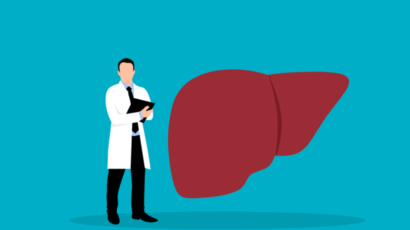Make changes to your diet, reduce levels of heavy metals in your body

People may be able to reduce the levels of heavy metals in their body by making changes to their diet. Certain foods may help transport excess heavy metals out of the body.
Having high amounts of heavy metals in the body may cause health concerns or chronic health conditions. However, there is a limited amount of evidence to suggest that a heavy metal detox with drugs, or chelation therapy, can cure any conditions.
Chelation therapy can be vital for treating heavy metal poisoning. However, in some cases, it can be very dangerous and may cause more harm than good. Sometimes, it may even be fatal.
People wanting to detox from heavy metals should try to find alternatives that are safer and work more gradually. Certain foods also work as chelators to bind to heavy metals and transport them out of the body.
Certain supplements may also work to detoxify the body from heavy metals. People should consult their doctor before taking any new supplements, however, and they should always follow the guidance of their healthcare professional when aiming to naturally detox from heavy metals.
According to a review in 2013, the following foods may be effective for heavy metal detoxification:
- Dietary fibre: Various foods rich in fibre, such as fruit and grains with bran, may help remove heavy metals. Researchers have found fibre to reduce mercury levels in the brain and blood.
- Foods containing sulfur: Foods rich in sulfur, such as garlic and broccoli, may be good chelators. Research has suggested that garlic may have prevented kidney damage from cadmium and reduced oxidative damage from lead in rats.
- Cilantro: Cilantro may help, but there is currently limited evidence to support this. In an animal study, cilantro decreased absorption of lead into bone. In a trial looking at children with lead exposure, cilantro was as effective as a placebo.
The same review also lists some supplements that may work to chelate heavy metals from the body:
- Glutathione: Certain forms of glutathione, when a person takes it other than orally, may protect cells from the oxidative damage that heavy metals can cause.
- Modified citrus pectin: Modified citrus pectin and substances from brown seaweeds lowered heavy metal toxicity by roughly 74% in human participants across five case studies.
- Sulfur-containing amino acids: Examples of these are taurine and methionine.
- Alpha-lipoic acid: Alpha-lipoic acid is a strong antioxidant that can renew other antioxidants in the body and chelate metals from the body.
- Selenium: Selenium may help remove mercury from the body. In one trial, organic selenium supplementation benefited people with mercury exposure.
Although these are less extreme methods of detoxifying the body, it is still important to take care when using supplements or excessive quantities of one type of food.
Although dietary fibre may help detoxify the body, one study found that soluble fibre such as flaxseed increased the retention of cadmium in rats. People with high exposure to cadmium may therefore need to exercise caution when consuming flaxseed.
Certain chelators, such as alpha-lipoic acid, can cause the redistribution of metals in the body. People should therefore take care when using certain detoxification substances and always follow the advice of a healthcare professional.















